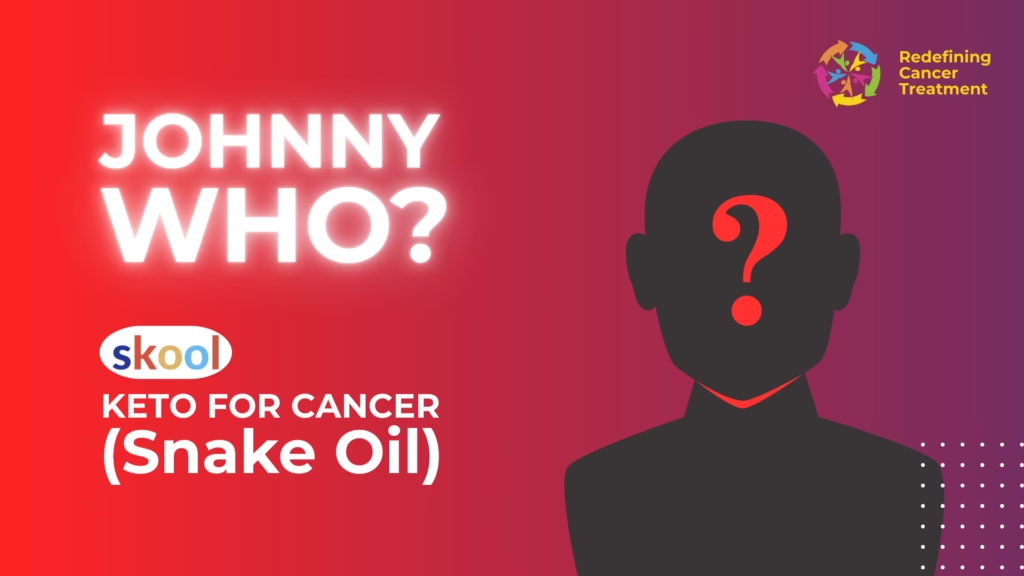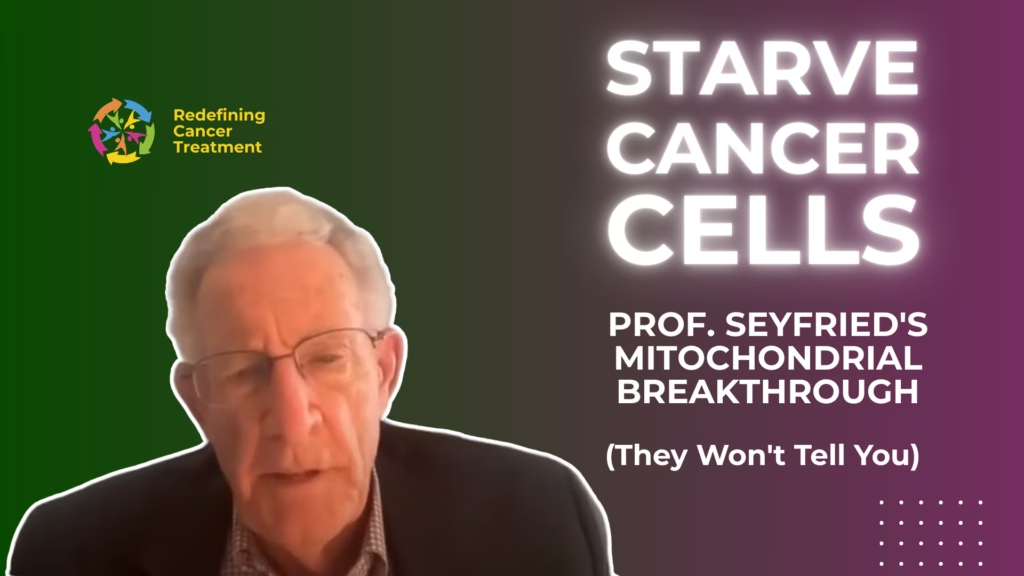
Thomas Seyfried Warns Against Unauthorised Use of His Work in Cancer-Keto Promotions
Dr. Thomas Seyfried Issues Warning: “Stick to My Published Work”⚠️ The cancer researcher clarifies he has no ties to “keto for cancer”
Professor Thomas Seyfried’s metabolic cancer theory challenges conventional oncology by targeting tumours’ energy weaknesses. By exploiting mitochondrial dysfunction through ketogenic diets and repurposed drugs like Fenbendazole, this approach starves cancer cells of glucose/glutamine while protecting healthy tissue. Discover how metabolic management offers safer, precision strategies to disrupt cancer progression.
Professor Thomas Seyfried
Professor Thomas Seyfried’s groundbreaking research challenges conventional cancer treatment paradigms by emphasising metabolic management over traditional cytotoxic approaches. His work focuses on targeting the unique energy vulnerabilities of cancer cells through diet, lifestyle, and repurposed pharmaceuticals.
1. Two Competing Cancer Theories
Somatic Mutation Theory: Attributes cancer primarily to nuclear DNA mutations, driving precision medicine strategies.
Mitochondrial Metabolic Theory: Identifies damaged mitochondria as the root cause, with mutations being downstream effects of defective energy metabolism1.
2. Cancer’s Metabolic Achilles’ Heel
Tumour cells rely exclusively on fermentation (not respiration) for energy due to dysfunctional mitochondria. This makes them dependent on:
Glucose (via glycolysis)
Glutamine (via glutaminolysis)
Normal cells can flexibly use ketones/fatty acids through functional mitochondria1.
Dietary Foundation
Ketogenic Diet: Restricts carbohydrates to lower blood glucose (<2.8 mmol/L)
Therapeutic Ketosis: Targets glucose ketone index (GKI) ≤2.0 using:
Fasting protocols
Moderate exercise
Strategic nutrient timing
Pharmacological Partners
| Drug | Mechanism | Advantage |
|---|---|---|
| DON | Glutamine analogue blocker | Starves metastatic cells |
| Fenbendazole | Dual glucose/glutamine inhibition | Low-cost repurposed agent |
Key Finding: Ketosis reduces drug toxicity while enhancing tumour-specific targeting1.
Press-Pulse Strategy
Chronic Pressure: Maintain nutritional ketosis
Acute Pulses:
Intermittent high-dose therapeutics
Hyperbaric oxygen therapy
Exercise-induced glutamine depletion
Documented Success
Paediatric glioblastoma models showing tumour regression in preclinical studies
Stage IV cancer survivors like Joe Tippens (lung cancer) using fenbendazole protocols
Improved chemo efficacy at reduced doses when combined with ketosis1
Systemic Barriers
Lack of clinical trials due to:
Pharmaceutical disinterest in non-patentable therapies
Regulatory hurdles for drug repurposing
Institutional bias toward mutation-focused treatments
Oncologists often lack training in cancer metabolism principles1
Metabolic Monitoring
Continuous glucose sensors (e.g., FreeStyle Libre)
Blood ketone measurements
Regular tumour marker tracking
Therapeutic Synergy
“When you suppress glucose through diet and target glutamine pharmacologically, tumours become metabolically marginalised.”
Adaptive Implementation
Individualized dosing schedules
Combination with standard care when necessary
Stress management to avoid cortisol spikes
Seyfried advocates for:
Unified patient advocacy demanding metabolic therapy integration
Reform of cancer funding priorities toward metabolic research
Education initiatives teaching mitochondrial biology in medical schools
“We have a clear biochemical roadmap to manage cancer – now we need the political will to implement it.”
This approach represents a fundamental shift from poisoning tumours to strategically starving them, offering hope for less toxic, more effective cancer management.
While systemic adoption remains slow, growing patient success stories and evolving research continue to validate this metabolic framework.

Dr. Thomas Seyfried Issues Warning: “Stick to My Published Work”⚠️ The cancer researcher clarifies he has no ties to “keto for cancer”

In this paradigm-shifting analysis of cancer biology, Professor Thomas Seyfried (Boston College) talks about starving cancer cells and dismantles the

The video explores how metabolic therapy can revolutionise cancer treatment by targeting cancer cells’ reliance on glucose and glutamine for energy. It

Explore the revolutionary insights of Prof. Thomas Seyfried in our latest blog, where we delve into his groundbreaking research on